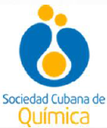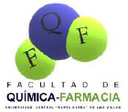Executive Secretary

VII Simposio Internacional de Química 2019
SIQ 2019
Calcium phosphate coatings are widely used to improve the osseointegration of metallic implants and also for shortening their healing time. The deposition of calcium phosphate coatings by the chemical method is mainly used due to its technological simplicity and the fact that no special devices are required. This paper presents a review of the state of the art in the deposition of calcium phosphate coatings by the chemical method, as well as the main results obtained by the authors for more than 10 years. The emphasis in the review is placed on the composition of the solutions, on the process parameters used during the treatment of titanium and its alloys, and on the activation treatments of the surfaces to be coated and on the doped of the coatings with different ions. In general, it was found a tendency to increase the content of calcium and phosphate ions in the solutions in order to accelerate the deposition of the coatings. In the experiments, supersaturate solutions in calcium ions (SCS) and different activation treatment were employed. Calcium phosphate coatings were obtained using deposition times between 4 - 24 h, in which crystalline nano-apatites generally prevailed. The influence of the content of calcium and phosphate ions in the SCS and the activation treatment on the layer thickness was demonstrated. Additionally, the use of processes of pre-calcification and post-deposition annealing allowed to significantly increase the adherence of the coatings to the substrate. Finally, the results in the deposition of the zinc doped Ca-P coatings are also presented.
Calcium phosphate coatings are widely used to improve the osseointegration of metallic implants and also for shortening their healing time. The deposition of calcium phosphate coatings by the chemical method is mainly used due to its technological simplicity and the fact that no special devices are required. This paper presents a review of the state of the art in the deposition of calcium phosphate coatings by the chemical method, as well as the main results obtained by the authors for more than 10 years. The emphasis in the review is placed on the composition of the solutions, on the process parameters used during the treatment of titanium and its alloys, and on the activation treatments of the surfaces to be coated and on the doped of the coatings with different ions. In general, it was found a tendency to increase the content of calcium and phosphate ions in the solutions in order to accelerate the deposition of the coatings. In the experiments, supersaturate solutions in calcium ions (SCS) and different activation treatment were employed. Calcium phosphate coatings were obtained using deposition times between 4 - 24 h, in which crystalline nano-apatites generally prevailed. The influence of the content of calcium and phosphate ions in the SCS and the activation treatment on the layer thickness was demonstrated. Additionally, the use of processes of pre-calcification and post-deposition annealing allowed to significantly increase the adherence of the coatings to the substrate. Finally, the results in the deposition of the zinc doped Ca-P coatings are also presented.
Sobre el ponente

Jesús Eduardo González Ruíz






